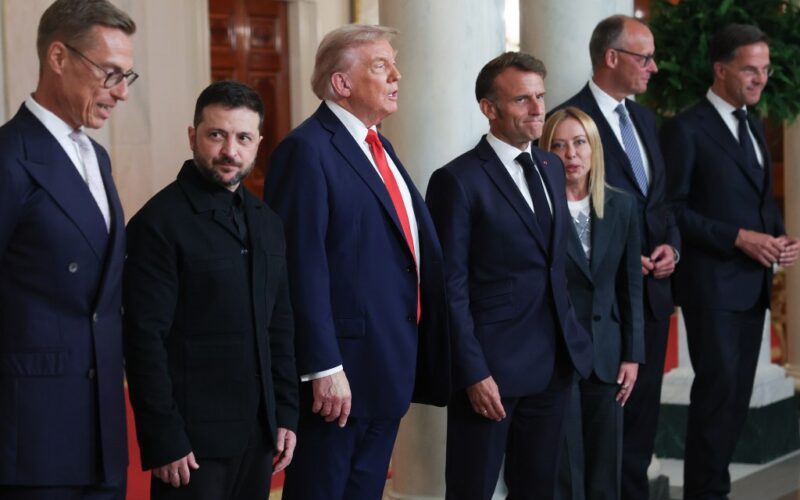It’s not often that you have eight European leaders, including one whose country is at war, descend on Washington in as close to an unplanned snap visit as you can get. Let’s hope that the White House visit convinced the White House resident of the importance of the moment.
Monday afternoon, Ukrainian President Volodymyr Zelenskyy was joined by the leaders of Germany, France, Italy, the U.K., Finland, the European Commission and NATO in a surprise summit following Donald Trump’s Alaska meeting with Russian despot Vladimir Putin.
Trump seems to have understood the Oval Office meeting as him, the genius dealmaker, convening the allies after a successful rendezvous with the Russian adversary, bringing everyone together in advance of brokering the peace deal that will win him the Nobel Peace Prize.
Whatever it takes; and that perception was likely reinforced by the heavy praise heaped on him, though of course he doesn’t grasp that his NATO counterparts have internalized the fact that flattery is the only language Trump will listen to. That and English, which fortunately they all speak well enough to have been able to tag team off each other without translators in bringing Trump around on not selling out Europe to an imperialist Russia, something European leaders probably did not expect to have to be doing 80 years after the end of WWII.
In actuality, this was more like the adults rushing to stop a toddler who had announced his intention to put a fork in the light socket before any further damage could be done. They certainly all watched in horror as Trump accomplished little but once again parroting Putin talking points after rolling out the red carpet for his admired authoritarian on U.S. soil, a meeting at which the Ukrainians were not represented.
This after having spent days talking about the possibility of ceding Ukrainian territory as part of some sort of agreement, and chastising Ukraine — invaded unprovoked by a much larger neighbor — of starting the war itself.
At least this frenzied intervention by our European friends does seem to have yielded some success, primarily in the form of Trump agreeing to some form of U.S. security guarantees for Ukraine, which are likely to be the only thing that actually incentivizes Putin to back off and stay back when a peace deal is reached. Something akin to NATO’s core Article 5 on joint defense comes to mind.
The problem is that such guarantees are only really worth anything if they’re credible; it is fundamentally a threat, and threats are meaningful when the target has reason to believe there will be follow-through.
Unfortunately, we can’t say that we expect Trump to stick to this message discipline. Given everything that we’ve seen so far in this administration, odds are that shortly Trump will be insisting that Ukraine handle its own affairs or that the U.S. will only provide security guarantees in exchange for some kind of pay or materials deal; either that or he’ll simply back off from the position altogether.
Even if he then comes around again, every time Trump wobbles on dead-serious international commitments, including support for the NATO alliance itself, it saps at their ultimate credibility and therefore makes them less potent.
We guarantee this: neither Trump nor any of us want to live in the world in which Putin believes he is not going to face consequences for his aggressive expansionist agenda. Trump made the commitments, now prove us wrong by sticking to them.








